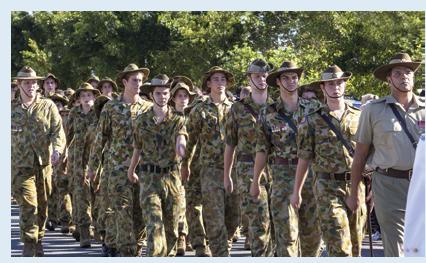The socalled Skype scandal of the Australian Defence Force (ADF) in 2011 resulted in a review of
Question:
The so‐called ‘Skype scandal’ of the Australian Defence Force (ADF) in 2011 resulted in a review of past sexual misdemeanours and brought to light some 775 plausible allegations of sexual abuse dating back to 1951. In April, 2011:
a clearly distressed female cadet identified only as Kate went public after discovering that her sexual encounter with a male colleague had been broadcast on Skype to a group of his mates in another room.
The male participant had set up a web camera to beam the encounter to a group of his friends in another room. The broadcasting of consensual sex between two naval cadets on Skype was to have ramifications that reached as far as the Commandant of the ADF academy, Commodore Bruce Kafer. Immediately following Kate’s complaint, Kafer decided to proceed with disciplinary proceedings against her for allegations that included alcohol and absenteeism. The then‐Minister of Defence Stephen Smith strongly criticised Commodore Kafer for this. Kafer was stood down on leave for almost a year, but returned to work in March 2012 after being cleared by the Kirkham report. In the wake of this, Smith was roundly criticised, and there were calls from prominent retired senior ADF officers for him to apologise. However, other key reviews released:
found a ‘boy’s club’ culture pervaded Defence, punishing part‐time workers and treating children as ‘career killers’. A review of alcohol abuse within ADF found there was a ‘high prevalence’ of hazardous drinking.
The Defence Department secretary Duncan Lewis and Chief of the Defence Force General David Hurley admitted that ‘our culture has tolerated shortfalls in performance’, and that steps needed to be taken in order to quickly and consistently address issues and reshape aspects of ADF culture. Lieutenant General David Morrison was made chief of the Australian Army in 2011. As part of a review by the Sex Discrimination Commission, he spent six hours listening to three Army women who had experienced abuse. For him, this was a life‐changing moment and he stated that he considered himself personally responsible for the anguish suffered by these and other women. He called all his commanding officers together and told them that things must change. He also changed the recruitment campaign so that more women would be attracted to the Army, and as a result successfully gained 600 more female recruits. In 2013 a new scandal had to be confronted. Members of a ‘Jedi Council’ were sharing pornographic images by email. So he recorded a YouTube video in which he warned that such behaviour would no longer be tolerated and that ‘the Army has to be an inclusive organisation in which both male and female soldiers are able to reach their fullest potential’. Any serving soldier who is not up to that should find ‘something else to do with [their] life’. In 2016, David Morrison was named Australian of the Year.
QUESTION
Watch the YouTube video (www.youtube.com/watch?v=QaqpoeVgr8U) recorded by Lieutenant General Morrison. Do you think that his methods will result in the successful elimination of the boy’s club culture in the Australian Army?
Step by Step Answer:

Management
ISBN: 9780730329534
6th Asia Pacific Edition
Authors: Schermerhorn, John, Davidson, Paul, Factor, Aharon, Woods, Peter, Simon, Alan, McBarron, Ellen





